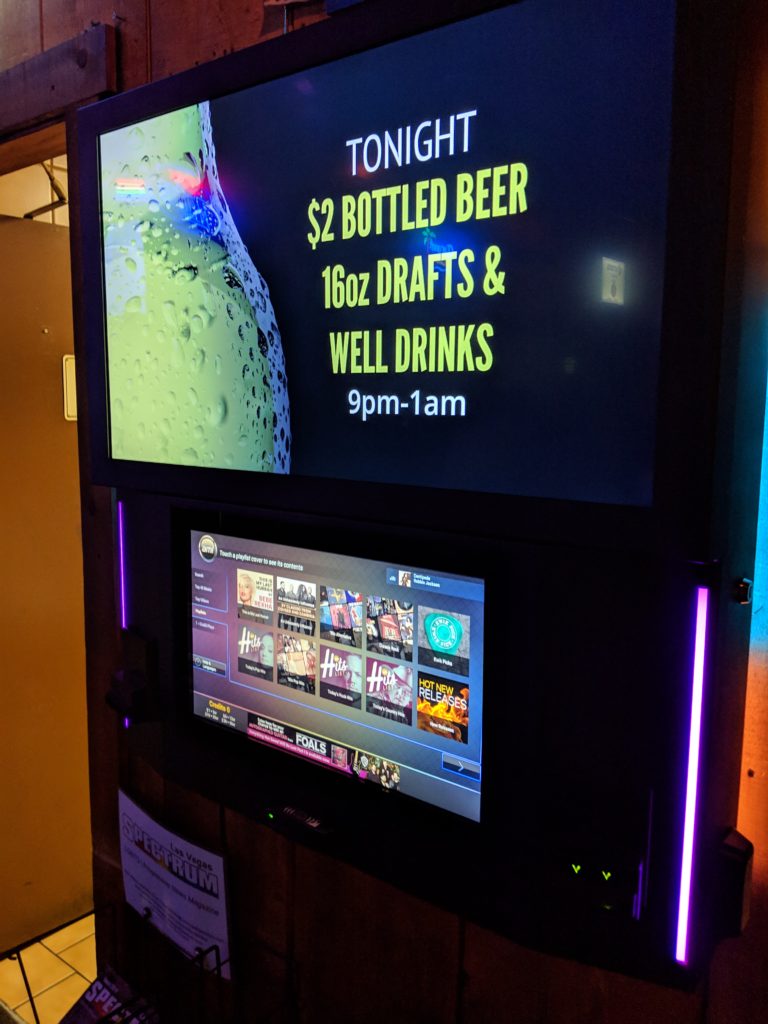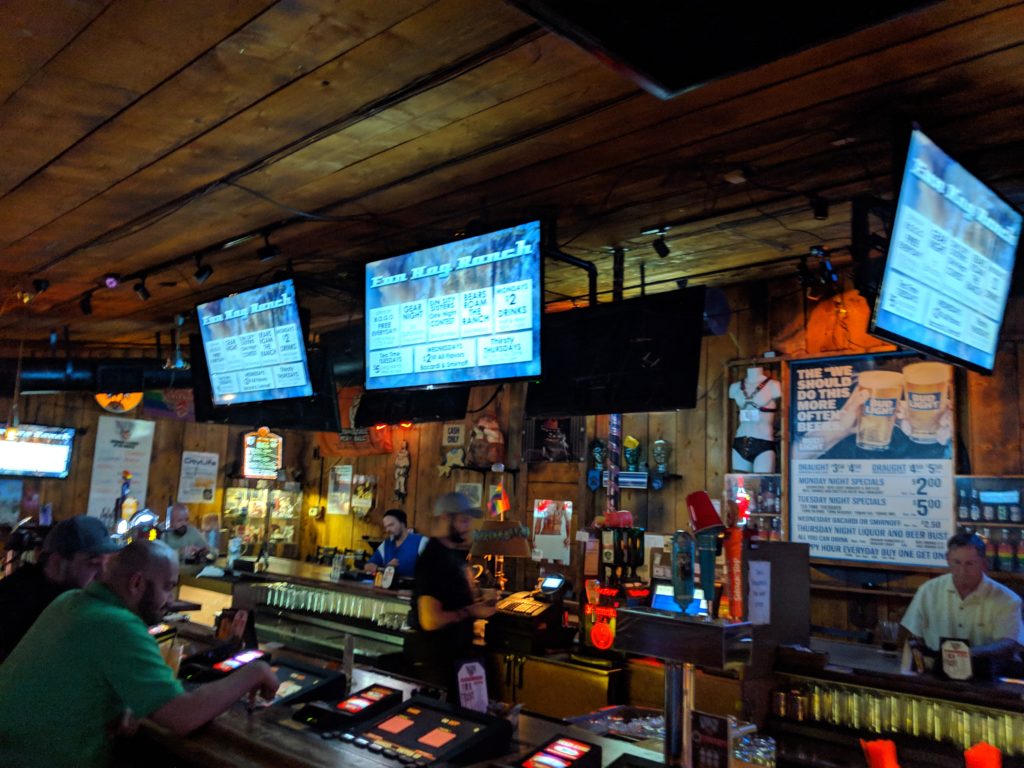
Getting the Most From Your Jukebox
Leading Sales Exec Promotes Tools Both Major Brands Offer Operators

By John Margold, Senior VP of Sales, AMI Entertainment
The Amusement Expo in March was an excellent opportunity to connect with old friends. I’m fortunate that during my 40-plus years in this industry, I’ve gotten to know some great people. Most of my coin-op career has been focused on jukeboxes so, not surprisingly, many of the conversations I had at the Expo were about jukeboxes and the tavern world.
I heard one concern several times. Operators would mention that a location owner was interested in another source of audio (or video) entertainment. Very rarely did the location “pull the trigger” and sign up for a subscription service, especially since they would have to pay a monthly fee rather than receive a share of the cashbox. But conversations like this can make a jukebox operator nervous. I’ve been “in the biz” since jukeboxes were three plays for a quarter (and my hair is more white than gray), so some folks assumed I might have a thought or two about how to combat this outside threat.
At this point in the conversation, I would suggest we sit down for a few minutes. After all, we had transitioned from polite chit chat to an important subject: the health of our livelihoods. The threat from outside the industry is real, but in my humble opinion, we have excellent tools an operator can use to combat these interlopers!
Bar owners don’t get up every day, deal with the traffic, employee issues, taxes and all the other problems facing a business owner just for the fun of it. They do it to make money. That’s okay. In fact, it’s good for us that they do. A jukebox operator can help the location make money by helping generate location traffic, especially on a traditionally slow night like Monday or Tuesday. Pool and dart leagues are the most obvious ways an operator can help his business partner, the location owner.
Years ago at a Nightclub & Bar Show, I heard the term “meat in the seats.” The people in our industry can help with this…and the successful ones do. Leagues are an obvious way, but simply having clean, working equipment can make a location an appealing place to go. In some parts of the country, pinball has had a resurgence. There is nothing on a home-based gaming platform that comes close to the excitement generated by the flashing lights and compelling sounds that come from a pinball machine. And while increasing traffic (meat in the seats) is a way for an operator to show his value to his customer, increasing dwell time might be even more significant.
Food and beverage (F&B) sales go up if people stay longer. This is not conjecture and it isn’t magic. It is just plain hard truth and every tavern proprietor knows it. If a patron is waiting for his turn to dethrone the 8-ball king, waiting for his music selections to play on the jukebox or waiting for his team to throw darts and his glass runs dry, he (or she) is going to order another round. This is the holy grail to a location owner. Help him increase F&B sales and you will have a solid and safe relationship.
Another way to help location F&B sales beyond increasing dwell time is to help the location market its products. Maybe they have rotating taps and run promotions with local breweries. Maybe they have discounts on high-end tequilas on Sunday and Monday nights. Using the power of the flatscreens that are all around the place can make the jukebox operator a valuable partner.
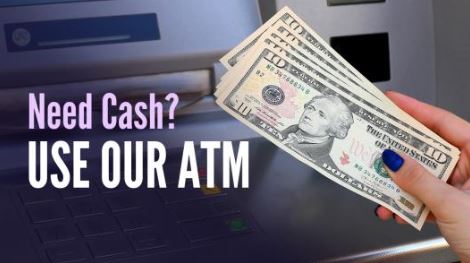
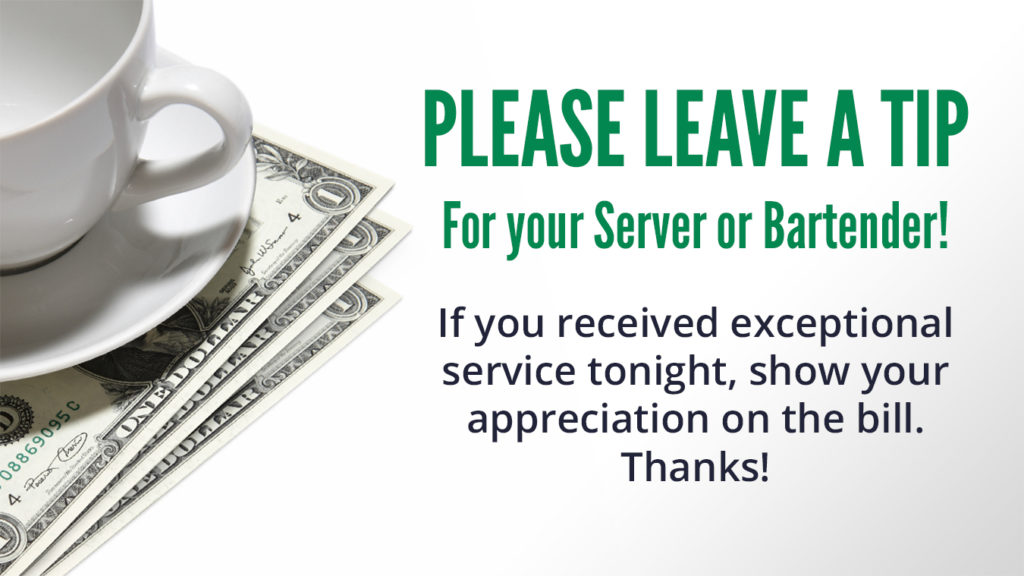 Today, it is easier than ever to tap into the venue’s electronics to do this. Both major jukebox companies have ways to attach the jukebox to external screens and both can create local ads. While few locations can afford to advertise on “real” television, they can have a powerful advertising medium right in their own establishments. Ads promoting menu specials or reminding patrons that the party next week still has tickets available can put meat in the seats.
Today, it is easier than ever to tap into the venue’s electronics to do this. Both major jukebox companies have ways to attach the jukebox to external screens and both can create local ads. While few locations can afford to advertise on “real” television, they can have a powerful advertising medium right in their own establishments. Ads promoting menu specials or reminding patrons that the party next week still has tickets available can put meat in the seats.
The outside threats like Spotify, Pandora and Orange Door don’t work with locations in this way, but our jukebox operators can! If an operator has the ATM machine in the location, why not have an ad reminding patrons that if they’re low on cash they don’t need to leave just yet? Or how about an ad reminding patrons that “cows are not the only thing for tipping,” a message that’s useful to both the operator and location management. (Bartenders and waitstaff always appreciate anything that promotes tipping, and if the waitstaff is an operator’s ally, he has powerful friends!)
As I continued to talk with operators at the show, some told me that location owners liked the “complete control” some of the non-jukebox music solutions offered. For example, they can change the genres that play by time of day, eliminating “adult”-themed music during the early hours when a younger crowd might be onsite. Let’s be clear: the software-driven jukeboxes of today are a far cry from your daddy’s CD box and your grandfather’s 45 rpm machine (or 78 rpm?!). The genre filters are extensive. You can fine tune the musical experience so the location management will be comfortable with what their patrons can hear. They can have this “complete control” and an income-producing product. Remember, the subscription-based solutions COST the venues money.
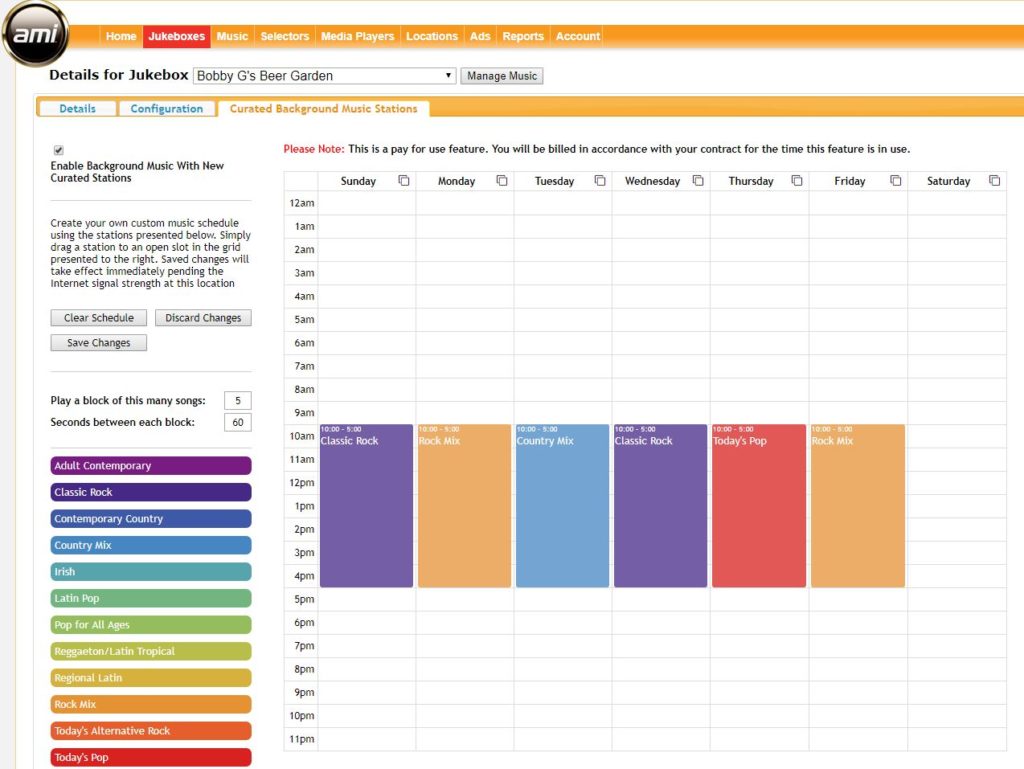
Today’s jukeboxes have features an operator can use to please a location and generate income for the route. Both major brands offer a background music system built into the jukebox. While some of us think providing “free” music to the patrons goes against the idea of “pay-for-play” (at first, I was a sceptic), it is better to control all audio and video entertainment in a location.
By controlling the background music through the jukebox, you can limit the time it plays, ensuring that while it is “pleasant enough” that the bartender doesn’t pull the power cord, it’s not the “best” (latest and hottest tracks). Also, the operator can make sure the background songs play softer than those selected (and paid for) by patrons. Let people put in money to hear “the good stuff.”
If a location is currently paying a company $45 a month or more for a subscription background service, he can save money by having the operator offer his solution for less. Again, the location makes money from the jukebox, but pays money for other music services.
Here’s another idea: If a location hires a DJ to come in on Thursday or Friday night, the operator can save the venue money by transforming the jukebox into a “DJ.” Simply set it for “free play” from 6 p.m. to midnight and charge the location a flat rate per hour (make sure it’s less than what a DJ charges). The location now pays less and pockets the difference. Everyone wins (except the DJ).
When the jukebox is in “powered down” mode it can’t make money. How often does the daytime bartender forget to flip the switch? Too often. With today’s technology, an operator can check to see if each of the boxes on his route are functioning. And if they aren’t, it’s a simple matter to turn them back on –– remotely –– without having to drive to the location. This will improve income, and the more the jukebox earns, the more the location gets as its share. When a tavern owner gets more money, he or she is less likely to remove the source of income (the jukebox) and replace it with a music system that has a monthly subscription fee attached.
Not every jukebox has every feature. For example, one major brand offers music videos. Another offers a tool on their mobile app so location employees can promote the use of the app to patrons. (This feature will be available from both companies soon.) In my conversations with operators, I ask if they are utilizing the tools their jukebox has to offer. Sadly, while a small number used some of the features, many used none. Only a few used most of the tools available to them.
It is much easier to curse the darkness than it is to find a flashlight. Today’s jukeboxes have lots of features (flashlights) that can be used to keep the jukebox solidly in place, features that can increase the cashbox as well. But they are not magic –– they require effort.
Route operators are not strangers to hard work. Most will use the tools if they are aware of them. Call the sales rep you deal with at the jukebox company. These men and women will be happy to help. The expression, “We all eat from the same cashbox,” has never been truer than it is with digital jukeboxes. For us to succeed, we must do so together.
To further help us do so, look in next month’s issue for a detailed dive into the new AMI Co-Pilot with Kapil Mistry.
John Margold has a lifetime of history in the coin machine industry, the son of New England coin-op legend Irwin Margold. John’s resume is highlighted by his longtime career with AMI Entertainment where he is currently Senior VP of Sales. His prior jukebox-specific experience also includes serving as Sales & Marketing VP at TouchTunes and Senior VP at NSM America. Margold also served as AAMA President in 2011-2012. John, his wife Julie and their little pup Deuce live in Grand Rapids, Michigan, where AMI is headquartered.

